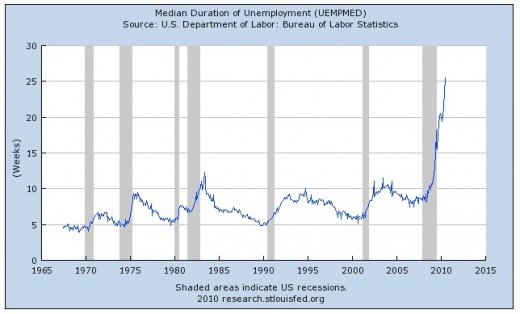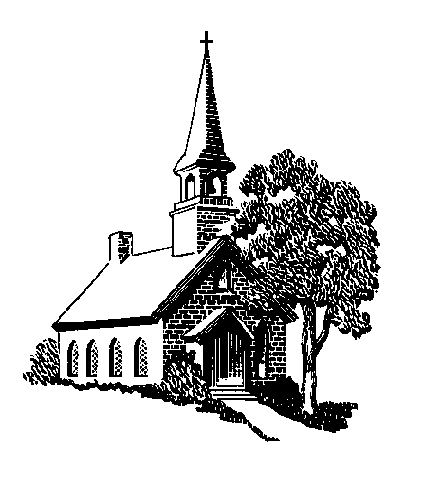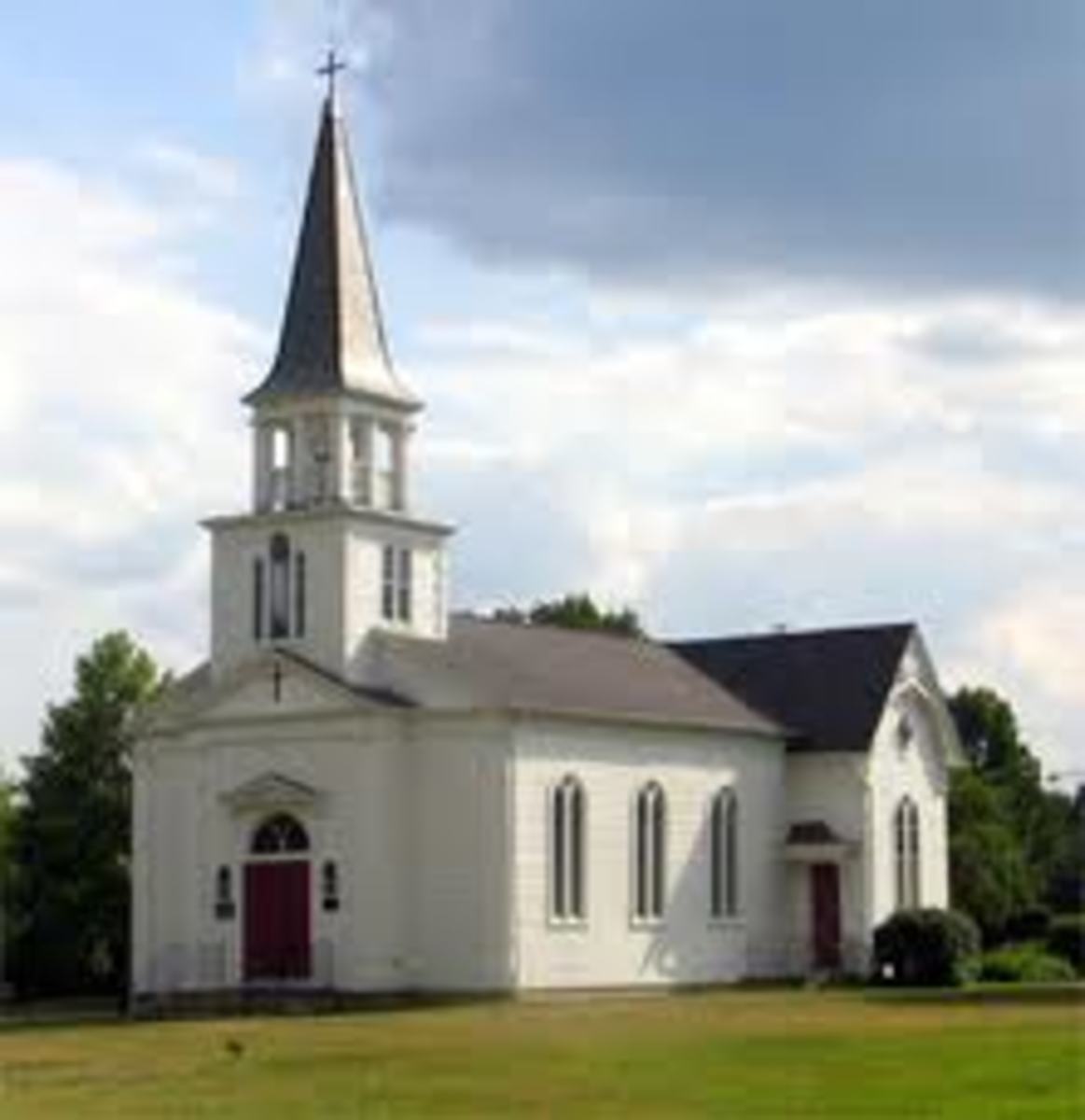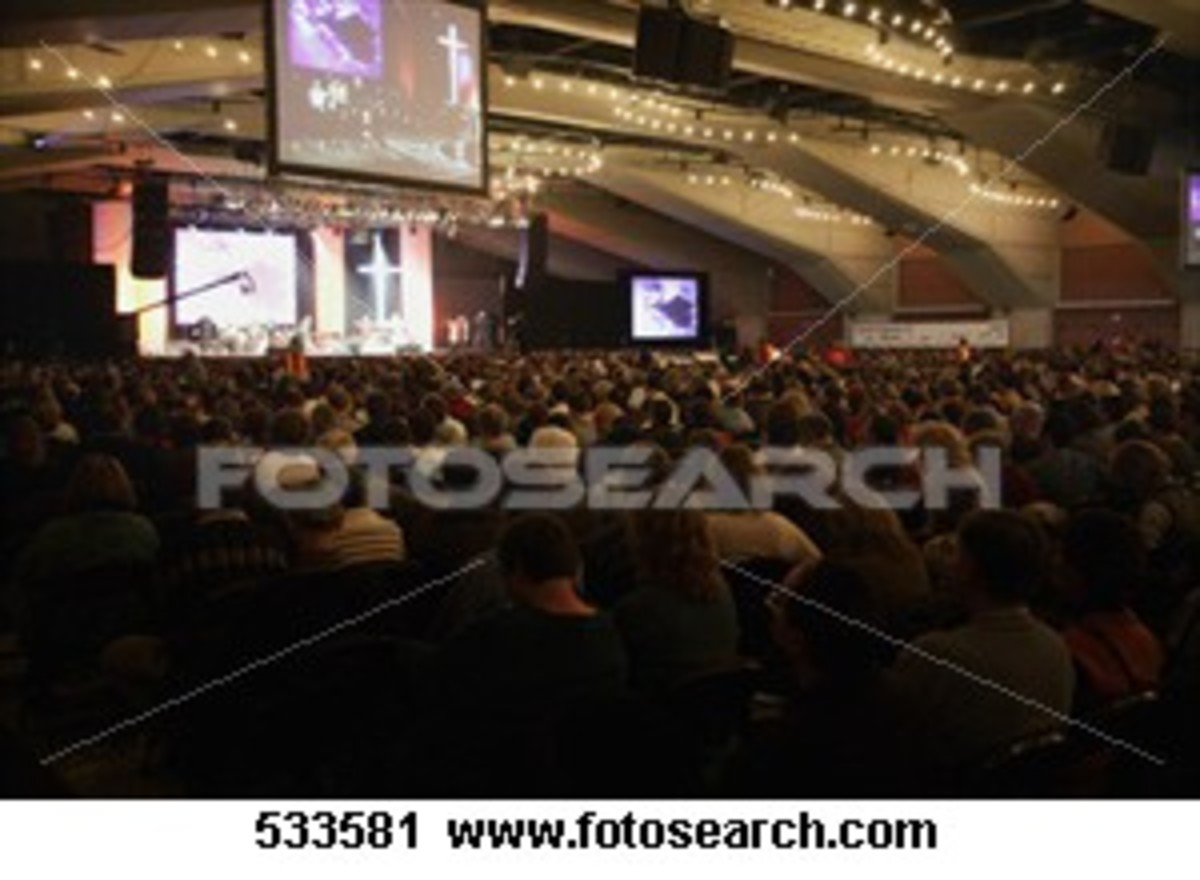Churches: How To Survive During These Times


Churches: How To Survive During These Hard Times
It is foolhardy to think that churches have not been affected by the current economic downturn. And the sad part is that for most people, believers and nonbelievers included, the light at the end of the tunnel still seems so far away.
What with the job layoffs, cutbacks, lesser work hours and worse, stores and entire businesses closing are still being reported left and right?
What with the real estate market still bleak or bleaker than expected and many families are still struggling to keep their houses or making the rent or the mortgage each month?
What with all these constant worries and natural calamities, more and more people are suffering tremendous physical and emotional stress? And sometimes we cannot differentiate which is worse, being overworked (and underpaid) or being out of work (and not paid at all).
And what’s the common end result?
Bills, bills and more bills to pay, to settle and to balance, and of course, there is no end in sight.
Not to mention, we now live and die in a lawsuit crazy era, where anybody can and will sue anybody else for just about anything and for the craziest of reasons. Also everybody has to be on their best behavior, be politically and morally correct and try their darnedest best not to offend anybody, even those who get offended just because you either fail to smile or if you did smile at them, or those who get offended because you failed to utter a greeting to them or you did say hi or hello to them or those who get offended because you just look, sound or smell "offensive" to them. No offense meant.
And this is the same for local churches. In our mind, we might think of them as exempted from all these worries of the world, but in reality, they like any normal business enterprise it is also the same thing and in the same boat. Churches, like any businesses need to pay their bills, make ends meet and tighten their belts like everybody else.
In fact, like any other enterprise, there have been a steady number of churches which have been forced to close down due at least in part to the economic downturn in recent years. And for some, the trend are continuing as not a few churches, big and small have reported drastic cuts in attendance, in contributions and in collections.
So, the question for today for our trying times, if you run a local church, how can you survive in these times?
In case you do not run or help run a church, all these will seem foolishness to you. But if you do, I pray that the Lord God will help you find what you need within this article.
I have no experience in churches belonging to other faiths, except that which adheres to the Christian Faith, and so that is where I will try to provide some answers to and these I have seen firsthand to work.
Number One: First Things First
If are tasked to run a local Christian church, you need to know a few important information and you need to do a few very vital things, before you can even begin to start to run a church or your church.
Number Two: Pray, Listen And Obey
You need to pray, study the Word and you really need to listen and follow what God is trying to tell you.
Number Three: Just Do It
Lastly you really need do what needs to be done, even if it is difficult for you to do so. And you have to do it right now!
Where to Start
Step One: Organization
Like any corporate enterprise, a local church is a company, a community if you want to call it that. And whatever denomination you belong to, whatever structure you have, whatever specific Biblical Truths you hold on to, all these will probably still be true.
1. You need to have one Leader or a CEO. For our purpose, it could be the Pastor and he has to be answerable to somebody above him (or her). It could be the Area, City or District Pastor or Supervisor, it could be the Board, or the Board of Local Elders or Deacons or whatever else you call them. And all this is because we all need to be accountable to somebody. I will explain this later. Now, whoever that person or group of persons are, they could again be answerable to somebody above them, such as they could have a Supervisor above them from the Main or Central Church or somebody in similar capacity that keep them in check. And in turn, this person or group of persons could again be answerable to somebody else who administers them, until all the way to the top most person. And this is what will make your chain of command. And all of these people are to be answerable to the Big Cheese or our God.
2. Now whoever your Local Leader is, he or she needs to have a Team, remember even the Lord Jesus had his raggedy group of disciples. And again, there needs to be order in this. And because all churches are slightly or even hugely different from one another, I will try to simplify this by function. One, churches have Services, either Sunday, Saturday or whatever day and thus it is wise to have a Leader (under the leadership of the Local Leader or Pastor) who will run or mange all the Services. And this should be somebody other than the Local Leader or the Pastor and let us call this person, the Service (Main or Overall) Leader. This could be one person or a group of persons, depending on how big or how many services the church has. The Pastor should be mainly concerned with the Ministry of the Word. We all know preachers whose sermons we forget the minute who walk out the church or preachers who ramble on and on and could make a fortune because they sure found the cure for insomnia and preachers who seem to be the only person in the room who understood and are even remotely interested in what he was trying to say. And should we ask, why people are coming to hear the sermons at all?
3. Now churches have all sorts of other Ministries or offices or whatever else your church calls them. And these would normally be the Ministry of Helps, Works, Worship Ministry, Guest Ministry, Kids Ministry, Youth Ministry, Mens and Womens Ministries, Young Adults or Couples Ministries and whatever else you might have. But remember, the more ministries you have, the more you need to administer. Keeping this number to a manageable number is always a good idea. All these ministries could be directly involved in the Services or they may have their own service times and days. If these ministries work or fall within your Services, then all the Leaders in these Ministries would be answerable to the Service Leader that we defined earlier on. Otherwise, they would be answerable to the Pastor or whoever else the church may have in the church hierarchy. These Ministry Leaders then will lead their respective Ministry Team Members and they in turn will be answerable to their respective Ministry Leader. And all this includes both paid and unpaid, full-time and part-time, project basis or volunteer leaders, members or church workers, the same as employees or workers in any company. Now we have our basic structure and we can now plainly see how this could very well be like any other regular business or company.
4. With this picture, it is easy to see how a church could be managed as any other enterprise. And why not, God is the Creator of the entire Universe and why would He not demand or expect order and organization within His own church and His people.
5. What else is missing? These would be all the necessary policies and procedures that we see from any normal company. And all these should be in place, depending on your church’s structure. Each Ministry Leader should have their own policies which each respective Ministry Team Member are expected to comply with. And the Service Leader should have his/her own, and these for which all the Ministry Leaders should comply with. And the Local Leader or Pastor should have his/her own policies and procedures for the Service Leader. And so on and so forth up the chain of command, going all the way to God, who we all know have His own Policies and Procedures that believers hold on to.
6. Now it is complete, and it is time to run the Services.
Step Two: Boundaries
Deacons, Elders, Board Members have their responsibilities and are accountable to God and to other people who are above them. The Pastor is responsible for the Word at all their Services and other similar events. And just like what the Apostles did as recorded in Acts Chapter Six, when the main disciples of Jesus said "It would not be right for us to neglect the ministry of the word of God in order to wait on tables. Brothers, choose seven men from among you who are known to be full of the Spirit and wisdom. We will turn this responsibility (daily distribution of food) over to them and will give our attention to prayer and the ministry of the word.”, then it is also right for the Pastor to give his or her attention to prayer and the sharing of the Word. Thus, the need for a Service Leader who will oversee all the aspects and manage all the Ministry Leaders for each and every Service or event, while the Pastor prays and concentrates on his or her sermon or preaching. In turn, all the Ministry Leaders will oversee all the aspects of their respective ministry and manage all their respective members. Bigger ministries might have Assistant Leaders or Group Leaders but just like any other member, they are under their respective Ministry Leader. What comes out of this is usually: Order, Organization, Excellence, Accountability, Boundaries, Chain of Command, Structure, Stability, Harmony, Cooperation, Teamwork, Solidarity, Trust, Love, Victory, and so all these and more. And these are the reasons why as I have mentioned earlier, that there is a need for organization and accountability because only through these two things will we get all of these other things and more in return. And besides, as people we can only do so much, we should all learn to delegate and concentrate in what we really need to do and try not to do all things all at once, less we end up with half baked cakes, burnt ones or worst nothing at all.
Step Three: Trust
As the Lord trusts the Leadership of the church, the Deacons, the Elders or the Board trust the Pastor to pray and to give his undivided attention to the Ministry of the Word in their local church. The Pastor then trusts his or her Service Leader for the smooth operation of the entire Service, which the Word is just one part of and thus is frees the Pastor from other worries and from having to do the dirty job that could make him undearable to his or her congregation. The Service Leader by the same token, trusts the Worship Leader for leading the congregation to the presence of God through praise and worship and the Worship Leader trusts the members of the Worship Team. The Service Leader trusts the Head Usher or the Guest Leader to take care of any and all visitors, guests and regular attendees and church members, as the Guest Leader trusts his Guest Ministry Members to make each and every attendee feel right at home and engage them to come back the next week or to participate in other church activities or answer whatever questions they have regarding their faith and their local church. And this goes the same for all the other Ministry Leaders and their respective members.
Step Four: Stewardship
The Bible is full of teaching about the stewardship of one’s resources and finances. And all these are needed to be correctly applied so as to make the church move forward. Stewardship, in the sense that all the money going into the church coffers should be spend wisely and towards the goals of the church.
Step Five: Training
“But as for you, continue in what you have learned and have become convinced of, because you know those from whom you learned it, and how from infancy you have known the holy Scriptures, which are able to make you wise for salvation through faith in Christ Jesus. All Scripture is God-breathed and is useful for teaching, rebuking, correcting and training in righteousness, so that the man of God may be thoroughly equipped for every good work.” 2 Timothy 3: 14-17 (NIV)
Every first time visitor, especially non-believers who first become regenerated and are saved are infants and should be treated as such. They should be reared, nurtured and given milk. They need to be prayed for and trained to be disciples or Christ followers (or Christians). Remember the Great Commission was not "go out to all the world and make believers". No, it was "go out to all the world and make disciples", Matthew 28. Thus training and equipping believers should form a big part of the goals of your church.
Step Six: Cleaning Up The House
They say, in every house, there is someone who is deemed the black sheep, or the one who nobody wants to be with and the one who makes life miserable for everyone else. And this holds true as well in the House of God or in the local church. In the Gospels, in the Letters of Paul, it is mentioned that there will be people inside the church who will be in “sheep's clothing, but inwardly they are ferocious wolves.” And as I have mentioned earlier, the church leadership should be able to identify this and if possible let them go, even if as I have said, it will be more often than not very difficult to do. And this also holds true to certain decisions that needs to be made, regarding other difficult matters but if it is the will of God and needed to be done, it will always be best to do it and please God rather than to please men or a few humans.
Step Seven: Seek God, Revise, Improve, Enhance
Continue to do the things that work and to discontinue or revise the ones that do not. Above all pray to God, pray for one another, pray for everything, and do the right thing, (Philippians 4)
And in this day and age, it should not come as a surprise that churches must also "advertise" and go our into the community to introduce itself and to let the community it serves know what it is exactly that they do, what exactly they believe in and what can they do specifically for each individual person or family within their community. Jesus Himself did this as he constantly made Himself available and He went outside into the community. In this time though, we have so many other ways and tools to do the same thing and it is just wise to make full use of them, be it the web, any other technology and any other media--both for internal and external purposes.
See you in church this weekend!

Hub Number: #031
Date: 2010-July-17
Next Hub: http://hubpages.com/hub/The-Tree-Of-The-Knowledge-of-Good-And-Evil
Related Articles
- Steering the Titanic: Five Ways You Can Keep Your Church Afloat In the Era of the Mega-Church -- Chr
5 guidelines to being part of a healthy church family, in mega-church, multi-site, or small attendance churches. An exploding world population coupled with a trend for denser community living in North America has led to larger churches. Perhaps your - 10 Ways to Keep Me from Discovering Your Church | Church Redone
I'm now a few weeks into looking for a new fellowship body and I've come up against many barriers that churches have in place to keep me from easily finding or - 6 Steps to Keep Your Ministry Safe | Articles | BuildingChurchLeaders.com
From the editors of Leadership journal, BuildingChurchLeaders.com is the only online community that provides all the leadership training and support pastors & church leaders need.









